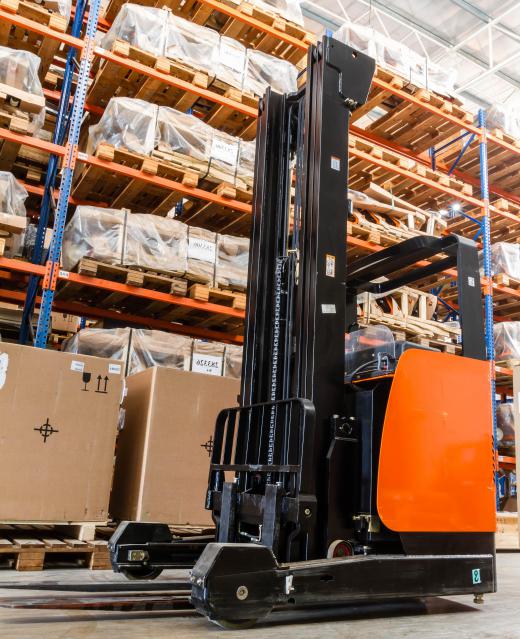A forklift wheel is a steel ring that has a tire bonded to it. The forklift wheel is pressed onto the forklift hub to provide a softer, cushioned ride while at the same time providing a level of traction required for traversing ramps and other surfaces. There are several types of rubber compounds that are commonly bonded to a forklift wheel, with each providing its own unique positive aspect and preferred use characteristic. While similar in construction, the rear or steering wheels of the forklift do not require changing nearly as frequently as the drive wheels. Typically, tears and rips in the rubber tire component are the driving reason behind the average forklift tire or wheel replacement.
The tremendous amount of weight that a forklift commonly carries requires the forklift wheel to be constructed of very durable and strong material. The rubber tire of the forklift must also be constructed in a manner that will be impervious to blowing out or bursting under a heavy load. By utilizing a solid tire bonded to a steel wheel, designers solved the problem and inherit dangers associated with a pneumatic tire and wheel assembly. By using a pressed-on forklift wheel, problems associated with a weak wheel stud or off-balance wheel assembly were also bypassed.

The type of rubber and tire tread pattern is dictated by the surface that the forklift will operate on. Typically, indoor warehouse floors are constructed of concrete with a very smooth surface finish. This type of surface requires the use of a smooth or slick tire to be mounted onto the forklift wheel. The smooth tire provides the ultimate in traction, providing the floor surface remains dry. In a freezer or cold storage application, the tire best suited for use is a treaded tire. Rubber compound is also critical to the choice of tire. In wet or cold storage applications, the primary tire would commonly be a hard rubber tire.
By mounting a hard rubber tire to the forklift wheel, the forklift is able to operate in the cold and damp environment while maintaining traction on dry areas. The hard rubber is also the choice for most forklifts that routinely operate in gravel, dirt or machine shops that might have steel cuttings on the floor. For other clean and dry floors, a neoprene forklift wheel may offer superior traction while providing good stability under a raised load. The black rubber will typically outlast a softer neoprene forklift wheel, however, the neoprene will offer less floor damage that may be a critical factor on older hardwood floors or showroom floors.
